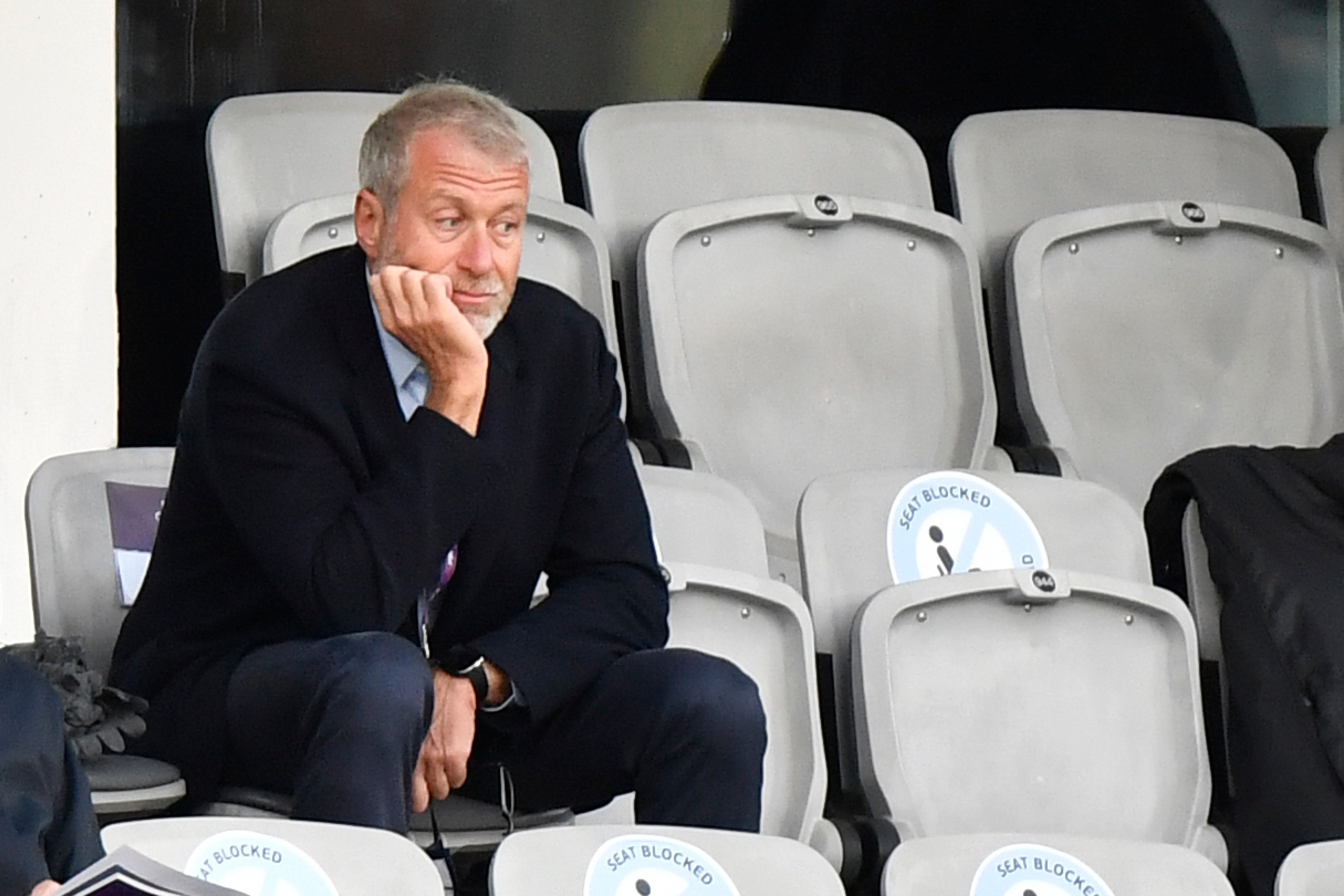Former Chelsea owner Abramovich loses legal action against EU sanctions
Former Chelsea owner Roman Abramovich has lost in his legal attempt to overturn sanctions imposed by the European Union for his role in the Russian invasion of Ukraine

Your support helps us to tell the story
From reproductive rights to climate change to Big Tech, The Independent is on the ground when the story is developing. Whether it's investigating the financials of Elon Musk's pro-Trump PAC or producing our latest documentary, 'The A Word', which shines a light on the American women fighting for reproductive rights, we know how important it is to parse out the facts from the messaging.
At such a critical moment in US history, we need reporters on the ground. Your donation allows us to keep sending journalists to speak to both sides of the story.
The Independent is trusted by Americans across the entire political spectrum. And unlike many other quality news outlets, we choose not to lock Americans out of our reporting and analysis with paywalls. We believe quality journalism should be available to everyone, paid for by those who can afford it.
Your support makes all the difference.Former Chelsea owner Roman Abramovich lost in his legal attempt to overturn sanctions slapped by the European Union for his role in Russia's invasion of Ukraine, with an EU court dismissing his claim Wednesday.
Abramovich had filed a lawsuit at the EU’s general court against the European Union Council, which imposed punishment on the 57-year-old oligarch in 2022 as part of measures targeting Russia and President Vladimir Putin’s close allies.
“The General Court dismisses the action brought by Mr Abramovich, thereby upholding the restrictive measures taken against him,” the court said Wednesday. “The Council did not in fact err in its assessment by deciding to include then maintain Mr Abramovich’s name on the lists at issue, in the light of his role in the Evraz group and, in particular, its parent company.”
When it sanctioned Abramovich, the 27-nation bloc said he “had privileged access” to Putin and “maintained very good relations with him,” allowing the tycoon to “maintain his considerable wealth.” According to the EU, Abramovich’s economic activities provided substantial revenues to the Russian government.
“He is a major shareholder of the steel group Evraz, which is one of Russia’s largest taxpayers,” the European Council said at the time. “He has therefore been benefitting from Russian decision-makers responsible for the annexation of Crimea or the destabilization of Ukraine.”
Abramovich, whose claim for compensation was also dismissed, can appeal the ruling.
The businessman has also been punished in Britain and had his assets frozen in response to Russia’s invasion of Ukraine.
Abramovich was also forced to sell Chelsea after being sanctioned by the British government for what it called his enabling of Putin’s “brutal and barbaric invasion” of Ukraine. The sale of the Premier League club for 2.5 billion pounds ($3.2 billion) — then the highest price ever paid for a sports team — was completed by a consortium fronted by Los Angeles Dodgers part-owner Todd Boehly.
It marked the end of the trophy-filled, 19-year tenure of Abramovich.
The EU has imposed 12 rounds of sanctions on Russia since President Vladimir Putin ordered his troops into Ukraine almost two years ago. The measures have targeted the energy sector, banks, companies and markets, and made over 1,000 Russian officials subject to asset freezes and travel bans.
The EU sanctions against Abramovich were announced after a BBC investigation revealed evidence about alleged corrupt deals that made the Russian businessman’s fortune.
According to the BBC, Abramovich made billions after buying an oil company from the Russian government in a rigged auction in 1995. The broadcaster said he paid around $250 million for Sibneft, before selling it back to the Russian government for $13 billion in 2005.
___
Follow AP's coverage of the Russia-Ukraine War at https://apnews.com/hub/russia-ukraine.